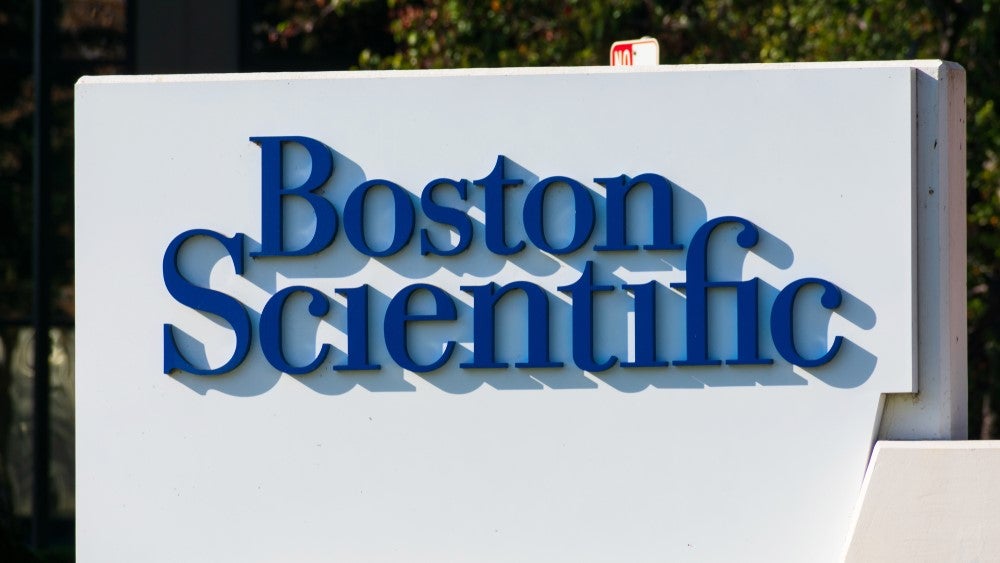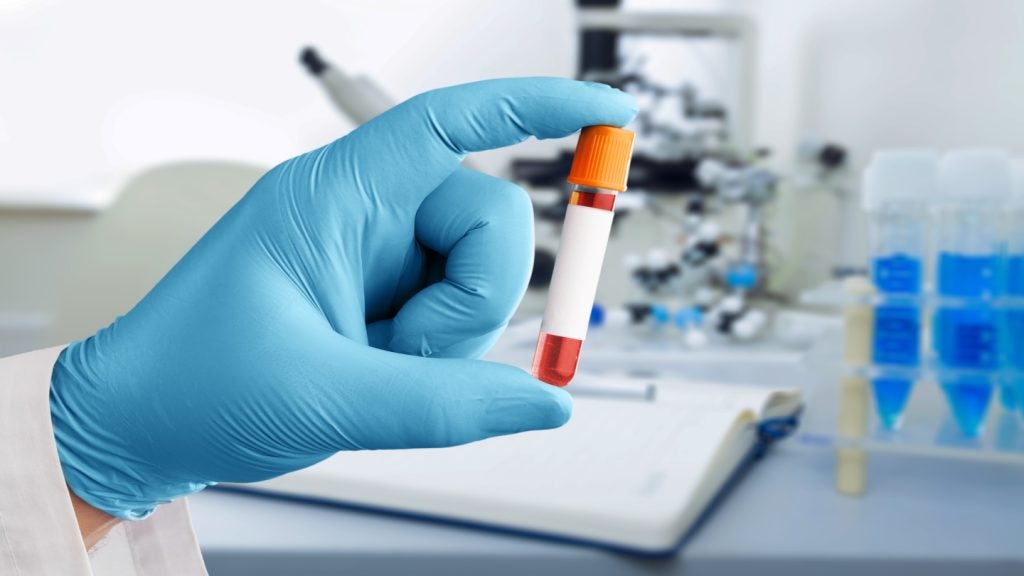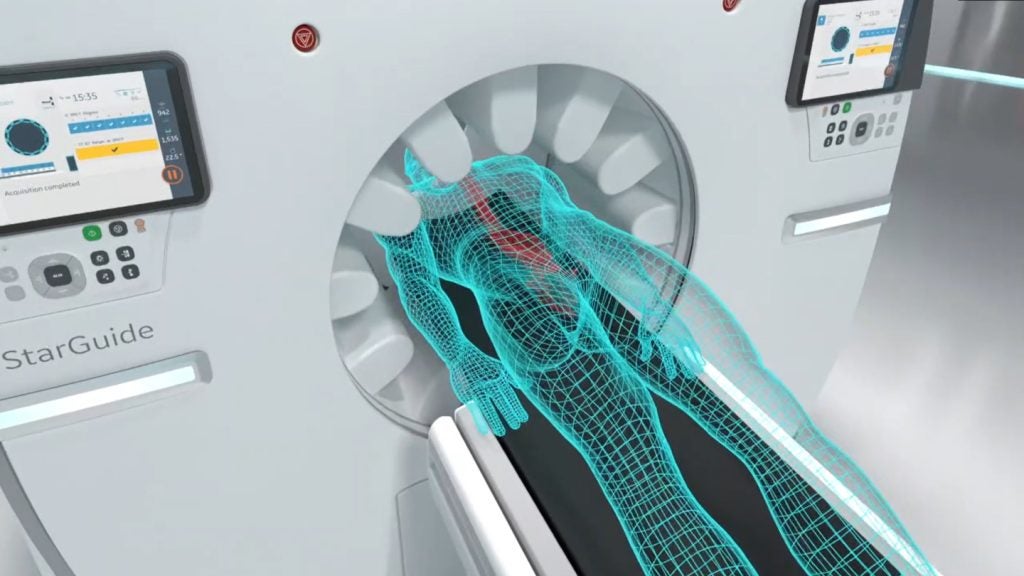The Cardiac Rhythm Management (CRM) space is comprised of devices that are used to restore the natural synchronised pumping rhythm of the heart.
According to reports by GlobalData, the CRM devices market in the EU5 countries (the UK, Spain, Italy, France, and Germany) was worth $2.42bn (€2.23bn) in 2023 and is forecast to reach a valuation of around $3.68bn by 2033, while the US CRM market was worth around $4bn in 2023 and is forecast to reach around $5.8bn by 2033.
Boston Scientific’s Farapulse PFA system gained a CE mark in Europe in 2021 and marketing approval from the US Food and Drug Administration (FDA) in January 2024, following rival Medtronic’s approval for its own PFA system in December 2023. Johnson & Johnson is the market leader in the US electrophysiology (EP) space, but its subsidiary Biosense Webster is still awaiting FDA approval on its Varipulse PFA system. With Boston Scientific and Medtronic’s recent PFA system market approvals, a shift in the US EP ablation space may be under way.
According to GlobalData analysts, while Boston Scientific received FDA approval for Farapulse PFA a month later than Medtronic’s PulseSelect PFA, physicians in the US have displayed a much stronger preference for Farapulse, potentially due to greater familiarity with the system, since it has been available in Europe since 2021. As a result, Boston Scientific experienced a compound annual growth rate (CAGR) of 138% in market value in the US between January and February 2024 and, according to GlobalData analysts, has gone on to acquire a 20% share of the US EP ablation catheter space.
PFA is a form of EP ablation that uses electrical pulses to target and destroy specific cardiac cells in the treatment of atrial fibrillation (AF), which affects more than 60 million individuals worldwide and remains one of the most common yet undertreated heart rhythm disorders, and other cardiac arrhythmias.
Unlike traditional thermal ablation methods such as radiofrequency or cryoablation, which both exert high-intensity energy, PFA treats the silent cerebral lesions (SCLs) that build up in patients that have AF nonthermally via electroporation and within milliseconds. The shorter procedure time, coupled with a less extreme energy form, decreases the likelihood of injuring nearby structures such as the oesophagus and pulmonary vein.
For these reasons, PFA catheters are becoming physicians’ preferred choice in treating AF and, according to GlobalData analysts, PFA will treat 75–80% of EP ablation procedures by 2030.
Medical Device Network sat down with Angelo Auricchio, Boston Scientific’s newly appointed chief medical officer for rhythm management in Europe, the Middle East and Africa (EMEA), to learn more about the company’s plans and focus areas for the CRM space in the region.
Ross Law (RL): What challenges exist for Boston Scientific’s rhythm management business in EMEA?
Angelo Auricchio (AA): The rising prevalence of cardiac issues across Europe demands innovative approaches to treatment. Over 60 million individuals are affected by cardiovascular disease, and heart-related conditions claim the lives of 1.8 million people annually in Europe. Our commitment is twofold – developing innovative solutions for managing arrhythmias in partnership with clinicians and contributing to transforming the way we care for those living with cardiac disease.
Recent technological breakthroughs have significantly accelerated the field of cardiology, particularly rhythm management. Advancements in pacing, defibrillation and ablation techniques have contributed substantially to improved patient outcomes through earlier detection and faster treatment methods.
RL: What plans does Boston Scientific have to drive adoption of its CRM solutions in EMEA, especially the Farapulse PFA system?
AA: Boston Scientific has been at the forefront of innovation in CRM solutions, with a focus on providing advanced technologies to physicians to improve patient outcomes in the EMEA region.
In the EP field, the Farapulse PFA system enables non-thermal ablation of cardiac tissue, offering a safer and potentially more effective treatment for AF than traditional thermal ablation. Since receiving a CE mark in 2021 and FDA approval in 2024, more than 125,000 patients have been treated with the Farapulse system globally. Along the way, we have continued to define, optimise and validate PFA therapy with robust clinical data including 18 clinical trials and more than 120 publications.
We also look forward to adding the FARAVIEW Software and FARAWAVE NAV Ablation Catheter to our EMEA portfolio, which will add integrated mapping capabilities to the Farapulse PFA System.
RL: Can you discuss any recent or upcoming clinical trial results that are particularly promising for the EMEA market?
AA: I would like to highlight the recent clinical trial data from the PERFECT-PAF trial presented at the ESC congress a few weeks ago.
The clinical trial assessed the safety and the economic value of the Farapulse PFA versus cryoablation in a randomised, controlled, non-inferiority trial. The results show that Farapulse procedures resulted in significantly lower adverse event rates and increased lab efficiency compared with cryoablation.
Earlier this year, real-world data from more than 17,000 patients in the MANIFEST-17K registry was presented, which demonstrated continued real-world safety of the system, with no reports of permanent phrenic nerve palsy, pulmonary vein stenosis or oesophageal injury.
RL: Are there any particular challenges in the EMEA region for clinical trials at this time in terms of regulatory and recruitment hurdles or otherwise?
AA: As the EU’s Medical Device Regulation (MDR) implementation progresses, both sponsors and regulatory agencies are gaining experience in adoption and adaptation, leading to improved timelines.
The excitement surrounding the Farapulse technology within the medical community is evident, as demonstrated by the strong engagement in clinical trials. Boston Scientific’s vision is to be a leader in the AF space, and we are committed to generating the necessary clinical evidence to guide clinical practice. To achieve this, we are closely collaborating with the medical community to accelerate the pace of clinical trials. We are highly encouraged by the progress of our trials and grateful for the enthusiasm of our investigators.
RL: What role do you foresee AI and its associated technologies playing in the CRM space?
AA: I see potential in AI and machine learning (ML) in the field of cardiac care, particularly when it comes to early detection through wearables and smart devices, deeper prediction scenarios and potentially the management of arrhythmias clinical decision support.
Pacemakers and defibrillators capture a vast amount of data about a patient's heart health. An innovative solution like the HeartLogic Heart Failure Diagnostic uses multiple sensors and combines trend data into a single composite index. This advanced system has proven effective in accurately predicting heart failure events up to 34 days in advance, providing clinicians with timely alerts and detailed reports when a predefined threshold is crossed.
RL: What opportunities exist in the EMEA region for enhancing cardiac care access in remote locations with digital solutions?
AA: Digital solutions offer a promising avenue for expanding cardiac care access in remote regions of EMEA. Boston Scientific's RhythmCARE solution is a prime example, bridging geographic gaps and ensure on-demand and real-time connections to physicians in remote areas with biomedical engineers, as was recently the case in South Africa and in the Azores Islands. By enabling real-time support and access to critical medical insights, even during power outages, this technology empowers healthcare professionals to deliver high-quality cardiac care in even the most challenging environments.
RL: What in your view are the biggest unmet needs in the CRM space at this time, and how is Boston Scientific positioned to meet them?
AA: The CRM field is undergoing rapid evolution, presenting both challenges and opportunities. At Boston Scientific, we are committed to partnering with healthcare practitioners to advance early detection of arrhythmias and other cardiac events, while fostering greater public awareness of these conditions. Recognising the significant impact of cardiac conditions, such as AF, which affects approximately 3% of the European population, we understand the economic burden they place on healthcare systems.
Our solution-oriented approach goes beyond providing safe and reliable products; we strive to deliver value by addressing systemic barriers such as cost, access and resource constraints. By developing cost-effective solutions like the Farapulse PFA System, we aim to contribute to the sustainability of healthcare systems and improve the lives of patients affected by cardiac arrhythmias.
RL: What evolutions can we expect in the rhythm management space over the next five to ten years?
AA: The future of rhythm management is promising, with significant advancements expected in early detection, personalised treatment, remote monitoring and integration with other medical technologies. These advancements may ultimately lead to improved patient outcomes and enhance the quality of life for individuals suffering cardiac arrhythmias.















